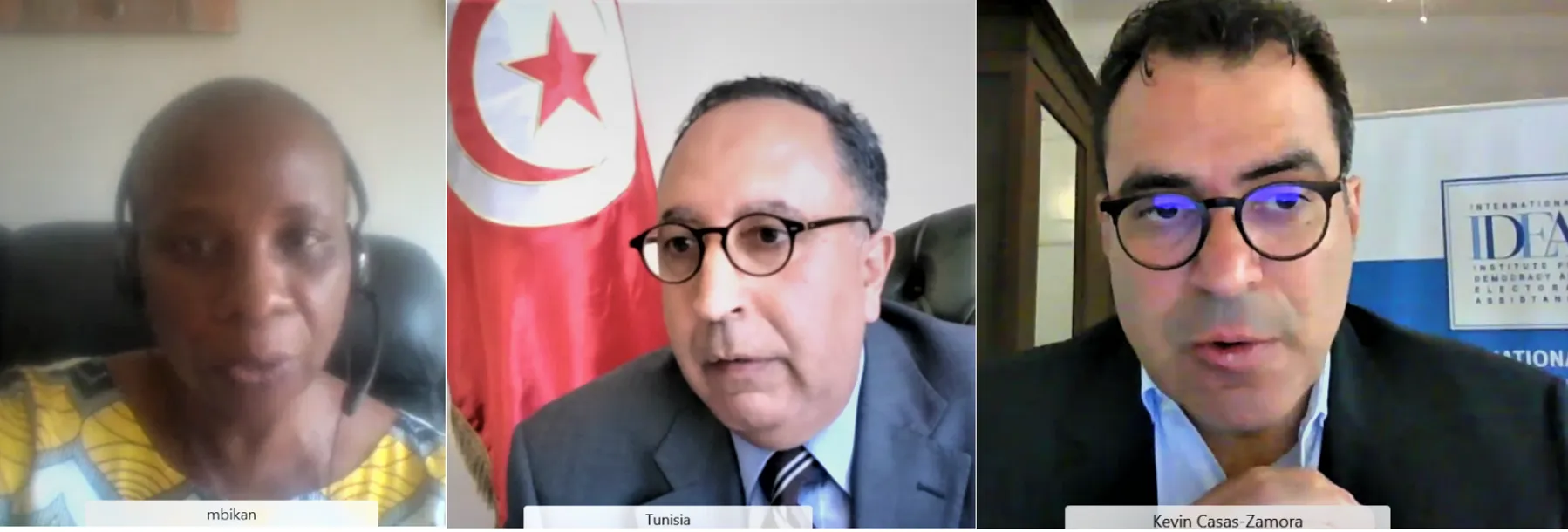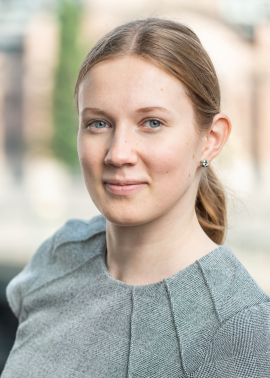
International IDEA, in collaboration with the Ministry of Foreign Affairs of Tunisia, held a virtual training session for young Tunisian diplomats on 8 June 2021. The training session was part of the Democracy for Diplomats training that the Institute has developed for its Members States.
The training was opened by H.E. Ambassador Riadh Ben Sliman, Embassy of Tunisia to Sweden, who noted that the topics of the training modules are well in line with the interests of the Tunisian diplomats. The Ambassador hoped that the diplomats can apply the learnings of the training modules in their future postings. The participants were also welcomed by Dr Kevin Casas-Zamora, the Secretary-General of International IDEA, who provided a brief introduction to International IDEA. He spoke about the ways in which International IDEA’s work can be helpful for Tunisia and Tunisian diplomats, illustrated for instance by the Youth Democracy Academy project, and emphasized the central role that Tunisia plays as a leading democracy in the region.
The first training module explored the topic of developing and strengthening inclusive democratic processes and institutions. In her presentation, Rumbidzai Kandawasvika-Nhundu highlighted the importance of including marginalized groups. She gave an overview of the different aspects of democratic inclusion, from electoral systems to political culture and systems, that influence women’s political empowerment as well as gender mainstreaming. The training module was complemented by insights from Khushbu Agrawal, Programme Officer at International IDEA, focusing on the political participation of youth. She pinpointed several trends in this area and outlined the challenges ahead for effective youth inclusion in democracies.
During the second module, Luis José Consuegra, Strategic Partnerships and Outreach Advisor at International IDEA, gave an overview of the roles of global and regional partnerships in supporting democracy globally. He discussed the policy advocacy for democracy in a multilateral setting, drawing upon the experiences of International IDEA’s UN Permanent Observer Office. He reflected on how democracy is an enabler of the 2030 Agenda for Sustainable Development and also underlined the instrumental role that regional organizations and regional democracy frameworks have in promoting democracy.
The training was concluded by Hamza Amor, Associate Programme Officer at International IDEA’s Sub-Regional Office in Tunisia, who gave an overview of the Sub-Regional Office work and expressed his hope that the training is a step towards an even closer collaboration between International IDEA and Tunisia.




